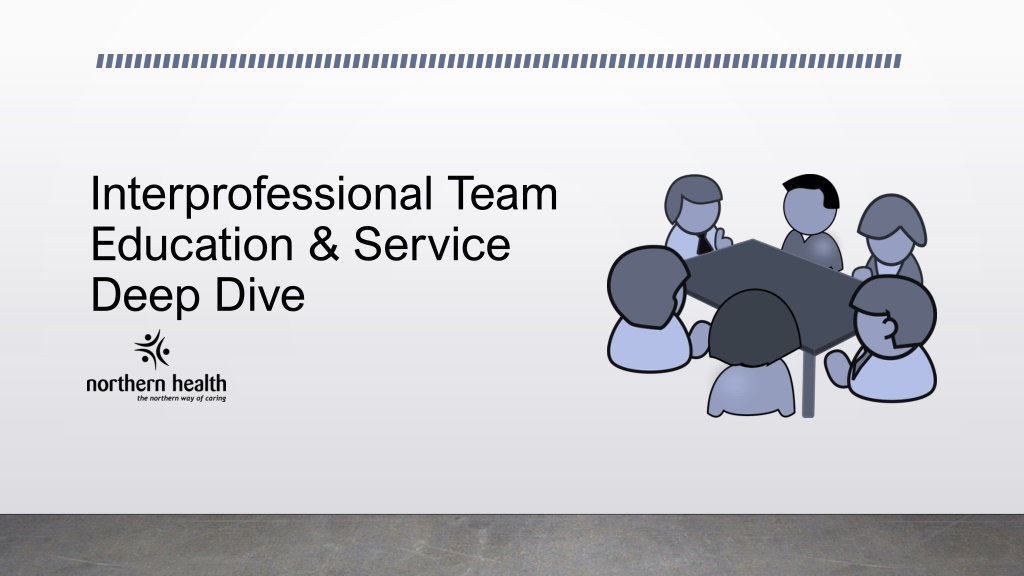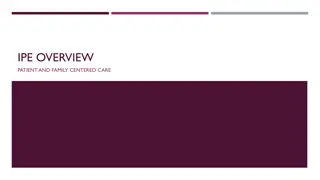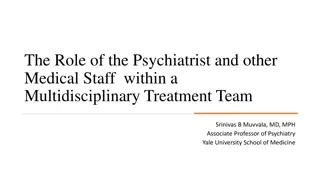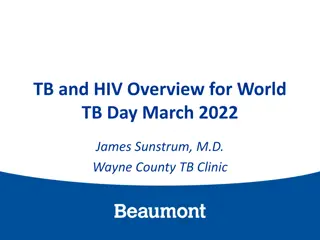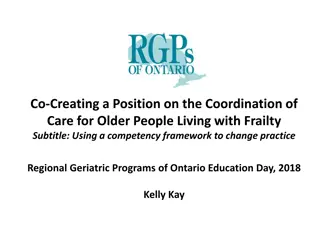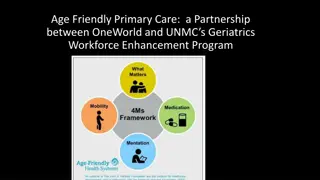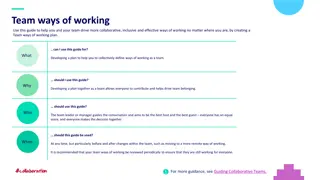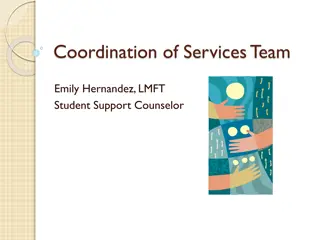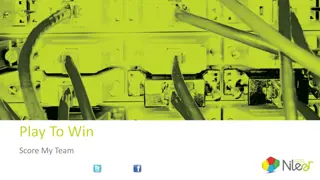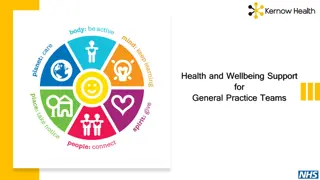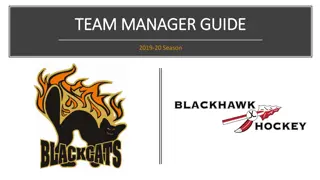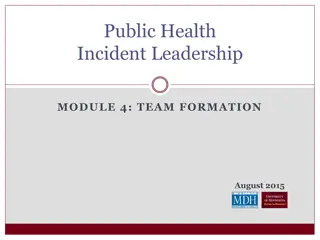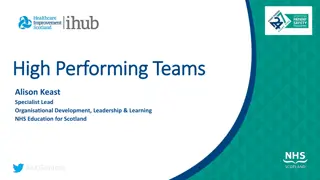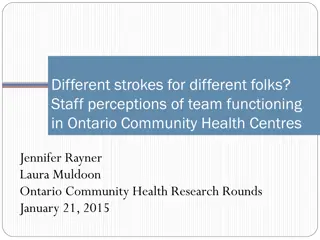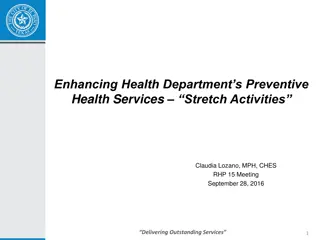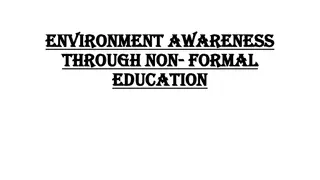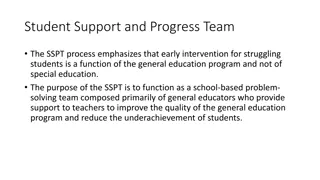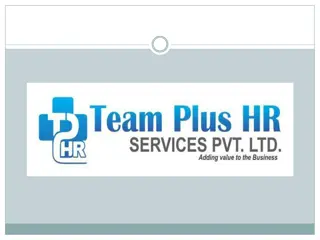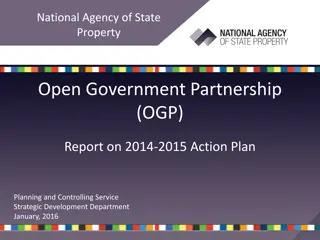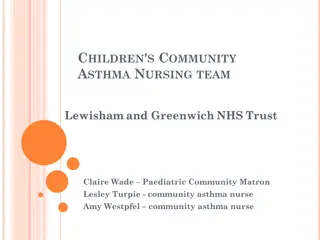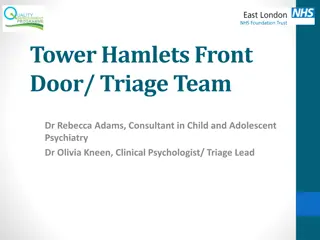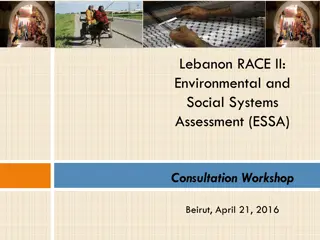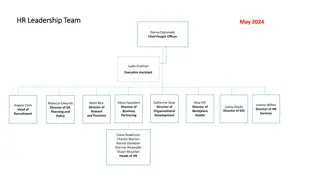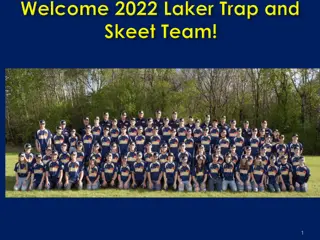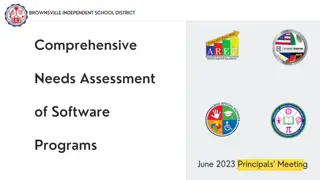Enhancing Interprofessional Team Education and Services
This deep dive into interprofessional team education and service aims to address gaps in training and education, ensuring staff wellbeing and quality service provision. With a focus on reducing anxiety and confusion among staff, the project aligns with strategic priorities to retain, redesign, recruit, and train healthcare professionals. The background highlights the evolving landscape of primary care services and the development of an IPT Standardized Orientation Curriculum. The Quesnel Prototype project encompasses stakeholder engagement, data analysis, report development, and orientation session administration.
Download Presentation

Please find below an Image/Link to download the presentation.
The content on the website is provided AS IS for your information and personal use only. It may not be sold, licensed, or shared on other websites without obtaining consent from the author. Download presentation by click this link. If you encounter any issues during the download, it is possible that the publisher has removed the file from their server.
E N D
Presentation Transcript
Interprofessional Team Education & Service Deep Dive
Principle Investigators Shannon Zwiers, RN Christine Platsko Cyndi Noseworthy No conflict of interest disclosures; all employees of Northern Health
Presentation Overview 1. Problem & Aim Statement 2. Alignment with Organizational and Provincial Strategic Priorities & Initiatives 3. Background & Context 4. Quesnel Prototype 5. Outcomes/Measurements 6. Results and Learnings from the Pilot 7. Next Steps 8. Conclusion
Problem & Aim Statement Problem Statement Known gaps related to focused IPT training, education, and shared understanding of how to implement the IPT Standardized Orientation Curriculum are negatively impacting the quality and provision of IPT services and staff wellbeing, with potential further impact to long-term staff retention. Aim/Scope The primary objective of this work is to reduce staff and leadership anxiety and confusion, allowing a greater focus on prioritizing the training and education needs of the IPT, relevant to the current gaps, strengths and, importantly, the demands for their services.
Alignment with Strategic Priorities & Initiatives Provincial Human Health Resource Strategy: Retain: Foster healthy, safe and inspired workplaces, supporting workforce health and wellness Redesign: Balance workloads and staffing levels to optimize quality of care by optimizing scope of practice, expanding and enhancing team-based care Recruit: Attract and onboard workers Train:Strengthening employer supported training models; support staff to advance the skills and qualifications Northern Health s 2023-2024 Strategic Initiatives Create and support strong, sustainable teams tailored to the services required
Background & Context Primary Care services have transitioned greatly over the last decade Required changes in practice for staff providing client care IPT Standardized Orientation Curriculum developed
Quesnel Prototype Project scoping (stakeholders, scope, schedules, deliverables) Data Analysis & Report Development Deliver orientation session Administer Survey Administer Survey Handover & Sustainment
Outcomes & Measurements Intervention: 1-Hour IPT SOC Information Session for each designation grouping Goal: Increase IPT SOC Registration Goal: Increase awareness & understanding, reduce stress & anxiety IPT Standardized Orientation Curriculum Registration 95% 100% 90% 80% 54% 60% 40% 20% 0% Course Registration Pre-session (Baseline) Target Post-Session
Outcomes & Measurements Quesnel IPT Deep Dive Pre/Post Session Survey Results 100% 93% 90% 80% 70% 57% 36% 60% 50% 40% 30% 20% 10% 0% I am aware of the required 3-Phase IPT Orientation Curriculum housed on the Learning Hub Pre-Session Post-Session
Outcomes & Measurements Quesnel IPT Deep Dive Pre/Post Session Survey Results 100% 100 90 80 67% 70 33% 60 50 40 30 20 10 0 I have started some courses towards completion of the required IPT Orientation Curriculum Pre-Session Post-Session
Outcomes & Measurements Quesnel IPT Deep Dive Pre/Post Session Survey Results 67% 100 90 80 38% 70 29% 60 50 40 30 20 10 0 I have completed one or more of the phases of the Orientation Curriculum Pre-Session Post-Session
Outcomes & Measurements Quesnel IPT Deep Dive Pre/Post Session Survey Results 100 90 80 80% 70 42% 60 50 38% 40 30 20 10 0 I feel I have a good understanding of the courses I am required to complete Pre-Session Post-Session
Outcomes & Measurements Quesnel IPT Deep Dive Pre/Post Session Survey Results 90 87% 80 70 60 49% 50 38% 40 30 20 10 0 I know what training I will be focussing my efforts on next Pre-Session Post-Session
Outcomes & Measurements** Quesnel IPT Deep Dive Pre/Post Session Survey Results 100 73% 90 80 70 21% 60 50 52% 40 30 20 10 0 I have set personal training and development goals that I am working towards Pre-Session Post-Session
Outcomes & Measurements Quesnel IPT Deep Dive Pre/Post Session Survey Results 100 90 80 70 57% 24% 60 50 40 33% 30 20 10 0 I feel stress or anxiety when thinking about working through the IPT Orientation Curriculum Pre-Session Post-Session
Results & Learnings Frequency of Service Events by Service Category 25000 22165 20000 15000 10000 7131 5222 5000 0 H&CC PPH MHSU H&CC PPH MHSU
Outcomes & Measurements Skills/Service Category Then Now Difference Basic Onboarding (Required) 769 857 +88 General Skills 236 251 +15 Population & Public Health Specific 138 143 +5 Mental Health Specific 89 108 +19 Home & Community Care/ Care Coordination Specific 223 273 +50 Chronic Disease Specific 13 28 +15* Allied Health Clinical Skills 0 0 N/A COURSE TOTALS 1468 1660 +192
Next steps: IPT Standardized Orientation Curriculum Info Sessions Provided virtually or in-person across the NI in May, 2023 (22 Sessions, 96 participants) Readiness Assessments Schedule building Modifications & Streamlining
Conclusion We re now using the dashboard and training tools to help identify areas our team is lacking. One of our new nurses, with the help of the Clinical Mentor and the new tools, identified a course she was interested in that no one on the team had taken yet. We approved that request, as it would benefit both the individual and the team. Our staff are now more aware of courses they need to take. Just the other day, some of our nurses were working together as a team to complete a difficult required course that we were able to let them know they were missing. We ve already started using the CAPE tool and curriculum to train new staff and to make sure all staff are not missing important pieces of training.
Questions? Shannon Zwiers Shannon.Zwiers@northernhealth.ca Susan Schienbein Susan.Schienbein@northernhealth.ca
